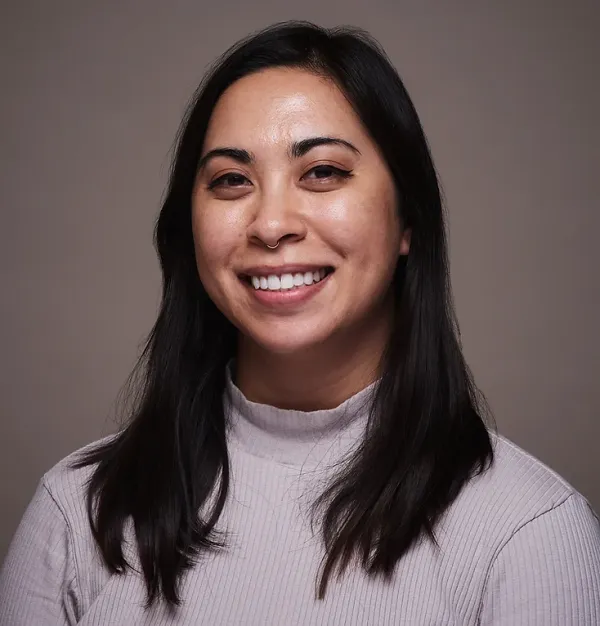BENICIA – Benicia oil refinery operator Valero and Amports, the shipping company that runs the Port of Benicia, have agreed to pay $3.3 million to settle a lawsuit brought by environmental nonprofit San Francisco Baykeeper.
Baykeeper alleged in a 2022 lawsuit that Valero and Amports were violating the Clean Water Act, as well as other state pollution laws, by leaking a toxic petroleum byproduct called petroleum coke, or petcoke, from the Benicia refinery into the Bay.
“This is a really important settlement. It really shows the power of the people and nonprofit organizations working together,” said Baykeeper executive director Sejal Choksi-Chugh. “Our scientists gathered the evidence, our lawyers filed a lawsuit, and we were able to hold these two major companies accountable.”
Petcoke is a waste product that looks similar to coal and contains heavy metals like arsenic, nickel, and mercury. It’s considered too polluting to be burned in the U.S., so it’s loaded onto ships and often exported to places like Asia and Africa, where it’s used for fuel. Petcoke is harmful to wildlife, and if the dust is released into the air it can cause serious health problems if inhaled, according to the U.S. Environmental Protection Agency. It also emits more greenhouse gasses than coal.
After a resident reported their petcoke pollution concerns to Baykeeper, the group sent drones to photograph what appeared to be petcoke leaking into the water and the air during cargo ship loading times between November 2020 and October 2021. In 2022, Baykeeper filed a citizen suit under a provision of the Clean Water Act that lets a person sue a suspected polluter after giving a 60-day notice to the EPA.
The settlement agreement was signed by a federal judge on Monday.
Amports said in a statement that it “strives to be a good environmental partner in the communities in which we operate.”
“We fully intend to abide by our commitments under the consent decree and remain committed to continuing our efforts to protect the local environment while providing safe and reliable port operations,” Amports said.
Valero did not respond to requests for comment.
The agreement will remain in effect for three years and includes a number of provisions that Amports and Valero are expected to follow. These include training employees on proper waste disposal, maintaining and repairing the machinery involved in the packing and transport of petcoke, regularly testing the water around the refinery, vacuuming up petcoke residue so it doesn’t accumulate and blow into the air, and agreeing to pay fines for any further pollution incidents.
“We chose three years intentionally because it’s enough time to really have them change their practices,” said Choksi-Chugh. “It gives us the opportunity to go on site, walk around, and talk with them about any problems they're experiencing.”
San Francisco Baykeeper released drone footage showing alleged petcoke pollution in the Port of Benicia.
About once a month, petcoke is transported via rail from the refinery to a marine loading area, where it’s stored in silos. The waste is then transferred onto ships at the dock using a conveyor system. SF Baykeeper’s lawsuit alleged that petcoke was spilling out at every stage of this process, so Choksi-Chugh said they now have about 36 chances to see that the companies are doing it cleanly.
“Our hope is that they'll have no problems,” she said. “After three years, they'll clean up their whole operation, and they won't be dumping petcoke into the community.”
Of the $3.3 million settlement, $2.38 million will be paid out to the nonprofit group Rose Foundation for Communities and the Environment, which grants funds to local environmental groups. The companies have 30 days to send the money to the Rose Foundation. The rest of the settlement will go towards reimbursing Baykeeper for costs associated with the lawsuit and for monitoring Valero’s and Amport’s compliance with the agreement.
“The settlement establishes that there's going to be money for nonprofits for several years to come,” said Jodene Isaacs, director of grantmaking at Rose Foundation. “We look forward to being able to pay it forward to environmental groups … we're just thrilled to be part of this whole process.”
Isaacs said that the settlement money will go into their water quality fund, which disburses grants twice a year to groups doing watershed projects. “And [those projects are] a lot of different things, like restoration, trash clean-up, water sampling, and community education,” Isaacs said.
Isaacs said they expect to open grant applications for the settlement money some time in spring 2025.
Choksi-Chugh said this settlement is a good example of how citizens and nonprofits can work together to protect their own communities. Because of a lack of time and resources, Choksi-Chugh said that it’s often rare for federal and state governments to step in for these kinds of pollution cases.
“Government agencies should be taking care of public health, and it’s kind of unfortunate that we have to step in like this,” Choksi-Chugh said. “But I've spoken to many staff at local agencies who really appreciate the work that we do because they do have other priorities that they're working on. And so they will sometimes say, ‘Hey, good job on bringing that case. We couldn't have brought it.’”
Benicia City Councilmember Kari Birdseye said that the community is “extremely grateful” to SF Baykeeper for protecting the water that many Benicians live around and paddleboard in.
“It shouldn’t take a local whistleblower, a tenacious nonprofit group with a boat and a drone, and a lawsuit for our local industrial neighbors to do the right thing and control their petcoke as is defined by the law,” Birdseye said.
Birdseye noted that Benicia is the only refinery town in the Bay Area that does not have a local industrial safety ordinance. Efforts to pass such an ordinance are ongoing.
Before you go...
It’s expensive to produce the kind of high-quality journalism we do at the Vallejo Sun. And we rely on reader support so we can keep publishing.
If you enjoy our regular beat reporting, in-depth investigations, and deep-dive podcast episodes, chip in so we can keep doing this work and bringing you the journalism you rely on.
Click here to become a sustaining member of our newsroom.
THE VALLEJO SUN NEWSLETTER
Investigative reporting, regular updates, events and more
- environment
- business
- courts
- Benicia
- Valero
- Port of Benicia
- Amports Inc.
- San Francisco Baykeeper
- Sejal Choksi-Chugh
- Rose Foundation for Communities and the Environment
- Jodene Isaacs
- Kari Birdseye

Gretchen Smail
Gretchen Smail is a journalist from the San Francisco Bay Area with a background in entertainment writing and a current focus on health and science reporting.
follow me :




